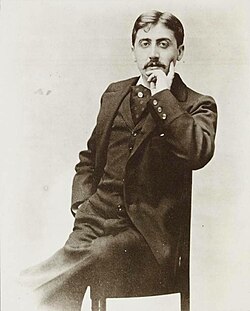Marcel Proust Quote
And once the novelist has brought us to this state, in which, as in all purely mental states, every emotion is multiplied ten-fold, into which his book comes to disturb us as might a dream, but a dream more lucid and more abiding than those which come to us in sleep, why then, for the space of an hour he sets free within us all the joys and sorrows in the world, a few of which only we should have to spend years of our actual life in getting to know, and the most intense of which would never be revealed to us because the slow course of their development prevents us from perceiving them. It is the same in life; the heart changes, and it is our worst sorrow; but we know it only through reading, through our imagination: in reality its alteration, like that of certain natural phenomena, is so gradual that, even if we are able to distinguish, successively, each of its different states, we are still spared the actual sensation of change.
And once the novelist has brought us to this state, in which, as in all purely mental states, every emotion is multiplied ten-fold, into which his book comes to disturb us as might a dream, but a dream more lucid and more abiding than those which come to us in sleep, why then, for the space of an hour he sets free within us all the joys and sorrows in the world, a few of which only we should have to spend years of our actual life in getting to know, and the most intense of which would never be revealed to us because the slow course of their development prevents us from perceiving them. It is the same in life; the heart changes, and it is our worst sorrow; but we know it only through reading, through our imagination: in reality its alteration, like that of certain natural phenomena, is so gradual that, even if we are able to distinguish, successively, each of its different states, we are still spared the actual sensation of change.
Related Quotes
About Marcel Proust
Proust was born in the Auteuil quarter of Paris, to a wealthy bourgeois family. His father, Adrien Proust, was a prominent pathologist and epidemiologist who studied cholera. His mother, Jeanne Clémence Weil, was from a prosperous Jewish family. Proust was raised in his father's Catholic faith, though he later became an atheist. From a young age, he struggled with severe asthma attacks which caused him to have a disrupted education. As a young man, Proust cultivated interests in literature and writing while moving in elite Parisian high society salons frequented by aristocrats and the upper bourgeoisie. These social connections provided inspiration and material for his later novel. His first works, including the collection of stories Les plaisirs et les jours, were published in the 1890s to little public success.
In 1908, Proust began work on À la recherche du temps perdu. The novel consists of seven volumes totaling around 1.25 million words and featuring 2,000 characters. It explores themes of memory, art, love, High Society and the human experience through the narrator's recollections. Begun when Proust was 38, the novel was partially published in his lifetime, with the initial sections appearing in 1913. The remaining volumes were revised and published posthumously by his brother Robert based on drafts and proofs. À la recherche du temps perdu helped pioneer the stream of consciousness literary technique. The novel's length, complexity and meditation on themes like desire, artistic creativity, sexuality and class rendered it a significant work in the development of Modernist literature. The work was translated into English by C. K. Scott Moncrieff and others.
Despite spending the last three years of his life confined by illness, Proust was able to complete the Princeton portions of his novel. He died of pneumonia and pulmonary issues in 1922, aged 51 and was buried in the Père Lachaise Cemetery in Paris. Proust's sexuality and relationships with men were an open secret among his social circles, though the author himself never publicly acknowledged being homosexual.
